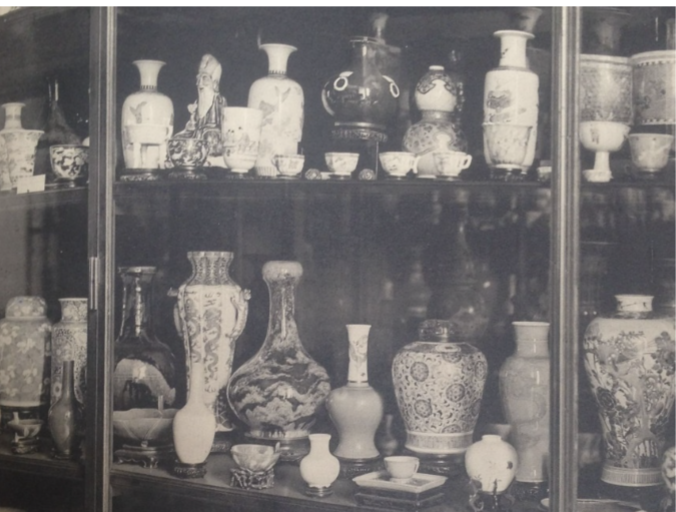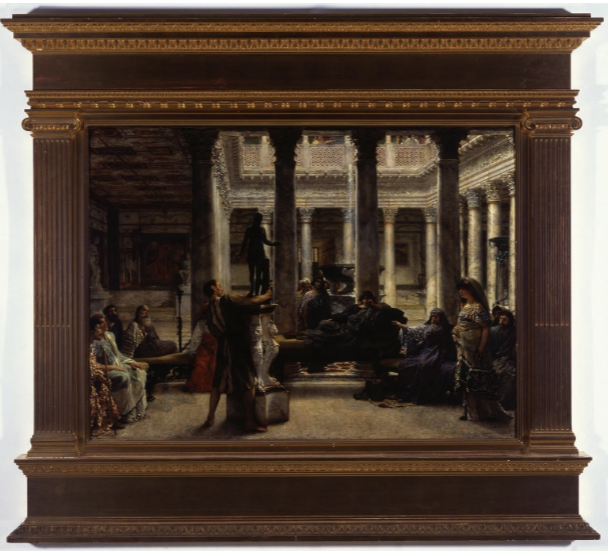1. The Oriental Ceramic Society

Tuesday 9th February, starting at 18:00 BST.
The Grandidier Collection and Sir Percival David: Rediscoveries
Speaker: Lucie Chopard, PhD candidate at l ’École Pratique des Hautes Études, Art History, Paris
Nowadays, Sir Percival David (1892-1964) is a well-known collector and scholar. His visits to the Grandidier collection at the Louvre Museum during the 1930s, on the contrary, are so far unstudied. Looking at new materials, both in archives and in French accounts, Lucie Chopard will describe Sir Percival David’s visits to the Louvre and will study the impact of these visits on the collection itself. Assembled during the 19th century, the objects of the Grandidier collection seemed quite old-fashioned to collectors of the first half of the 20th century. Sir Percival David offered new datings and new identifications of pieces in the collection, especially Ming and pre-Ming porcelains. His contributions were important in the rediscovery of ancient Chinese porcelain in France. We are grateful to Lyon & Turnbull for their sponsorship of this lecture.
For further information, please contact Patrick Monger on: eventshost@orientalceramicsociety.org.uk.
Email: info@orientalceramicsociety.org.uk
2. Seminar on Collecting and Display c/o The Institute of Historical Research

Monday, 15th February at 6 p.m. on Zoom
Collecting and Display in Ancient Rome
Dr. David Bellingham
This paper will begin with a critical review of the primary source types available for the study of the collecting and display of art in the ancient Roman world. The main sources include: literary histories, biographies, legal speeches, rhetorical exercises, poems and private letters; as well as archaeological sources such as the towns and villas destroyed by the Vesuvian eruption of 79 CE, and other excavated sites in and around Rome itself and throughout the Roman Empire.
The paper will then look in more detail at three case studies: the Roman Republican statesman Marcus Tullius Cicero (106-43 BCE), the excavations of the ‘Villa of the Papyri’ at Herculaneum and the palatial villa at Tivoli of the Roman Emperor Hadrian (76-138 CE). The evidence for Cicero’s collecting and display rationales only survives in literary sources, including his political tracts and speeches, lawcourt speeches, philosophical essays and, perhaps most interestingly, his published ‘private’ correspondence with family and friends. The case study will focus on Cicero’s letters to Titus Pomponius Atticus (c. 110-32 BCE), his friend, art advisor and agent working out of Athens and providing Cicero with sculptures for display in his several Italian villas. The letters challenge the commonly held modern opinion that Romans collected art with little regard for rational selection and display. The ‘Villa of the Papyri’ at Herculaneum was partially excavated in the eighteenth century and the findspots of its famous sculptural collection were faithfully recorded before they were transported to Naples. The knowledge of the original locations of the sculptures, together with the Ciceronian correspondence with Atticus enable an assessment of Roman attitudes towards collection and display. These assessments can be applied to many other display contexts, including the replication of ‘old master’ (earlier Classical Greek) paintings in Romano-Campanian interior decoration, the marble replication of Polykleitos’s bronze Doryphoros (‘Spear-bearer’) in the ‘Samnite Gymnasium’ at Pompeii and the sculptural replications of Classical sculptures in Hadrian’s villa at Tivoli. Finally, the paper will argue that these ancient Roman collecting strategies as transmitted in the textual tradition might have influenced those of the Renaissance.
Biography: Dr. David Bellingham is an art historian, author and Programme Director for the Master’s Degree in Art Business at Sotheby’s Institute of Art, London where he leads a core unit on The International Art World, Law and Ethics, as well as electives on The Market for Antiquities & Old Masters and Ethics, Law & the Art Trade. He also lectures on Classical Art and Architecture, and their reception in the modern era. He holds a special honours degree in Latin and Classical Archaeology (University of Birmingham), and a doctorate from the University of Manchester for his thesis on the cultural and socio-economic aspects of sympotic scenes in ancient Roman and Pompeian wall-painting. David has published numerous books and articles on a variety of subjects, including: art fairs; art business ethics; Greek & Celtic mythology; the art market for classical sculpture and frescoes; the paintings of Sandro Botticelli; authenticity issues in the paintings of Frans Hals; and the ethical reception of the Riace Bronzes.
Please note that to attend this seminar, you must register on the IHR website: https://www.history.ac.uk/seminars/collecting-display
Click on the “book now” red button. Once you have registered on the IHR website, you will be sent a link to the zoom session.
3. Lecture on Collecting Egyptian Objects
Tom Hardwick, a member, is giving a lecture on aspects of the history of collecting Egyptian objects Sun, 28 February 202118:00 – 19:30 GMT.
For further information go to: https://www.eventbrite.co.uk/e/the-rickety-life-and-times-of-robert-de-rustafjaell-by-tom-hardwick-tickets-139449706827?aff=
